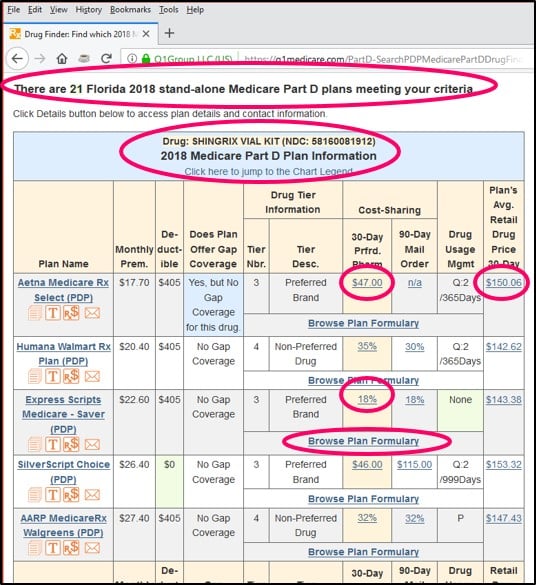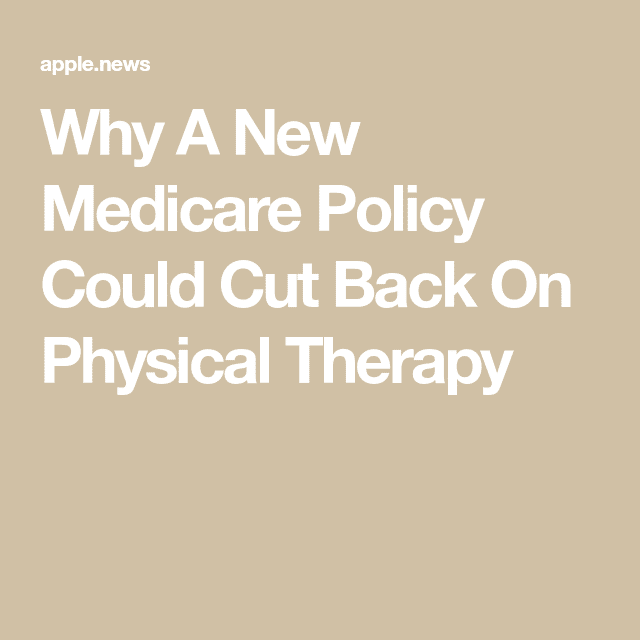How To Get Free Shingles Vaccines
If youre covered by a private health plan other than Medicare, such as through your employer or the healthcare exchanges under the Affordable Care Act, virtually all recommended vaccines are required by law to be provided at no cost to you. In that case, this means you can get a free shingles vaccine, as well as any other vaccine recommended by the CDC.
If you want to avoid any out-of-pocket cost for a shingles vaccine, you should consider getting the vaccine before switching from your private insurance to Medicare.
If youre already on Medicare and are a beneficiary of a Part D plan or an Advantage Plan that includes prescription drug coverage, you will pay less for a vaccine under the plan after you meet the plans deductible in a given year.
In addition, some Medicare Part D beneficiaries qualify for extra help provisions, which aid in paying for their monthly premiums, annual deductibles, and co-payments related to Medicare prescription drug coverage.
How Much Does The Shingles Shot Cost
There is currently only one shingles vaccine available in the United States, sold under the brand name Shingrix. An older shingles vaccine called Zostavax was taken off the market in November 2020.
Shingrix is delivered in two shots. Without insurance, each shot retails for around $202 for a total of $404, according to GoodRX in 2021. Discounts can lower that cost by nearly $50 per shot.
Medicare Part D and Medicare Advantage plans may cover most of the cost of the Shingrix vaccine, but you could have out-of-pocket costs for both the shot and your doctor visits.
Before getting the vaccine, check with your plans administrator to make sure your policy covers the shingles shot.
How Much Does The Shingles Vaccine Cost With Medicare
Most people who are enrolled in Medicare Part D pay less than $50 per dose for Shingrix, according to the vaccine’s manufacturer GlaxoSmithKline. However, your costs will vary based on the plan’s details and if you’ve already met your deductible amount by purchasing other prescription drugs.
For example, some seniors can get the shingles vaccine for free because it’s fully covered by their Medicare Part D or Medicare Advantage plan. Others may have to pay a portion of the cost, such as a $50 copay per shot, or pay full price if the deductible hasn’t been met.
If you don’t have a prescription drug plan or you haven’t met your plan’s deductible, the retail cost for the shingles vaccine is $162 per shot. For the two-dose sequence, the total cost is $324. If the full price of the shingles vaccine is out of your budget, there are several ways you can save money on the vaccine.
Also Check: What Is The New Shingles Shot Called
About The Shingles Vaccine
The Centers for Disease Control and Prevention recommends that healthy adults over the age of 50 get the shingles vaccine because it’s the only way to protect against the disease and its associated side effects. The risk of getting shingles increases as you age or if you have a weakened immune system. Always consult your doctor to find out if the shingles vaccine is right for you.
The CDC-recommended vaccine, Shingrix, is a recombinant zoster vaccine that has two doses administered within six months of each other. It’s classified as a Tier 3 drug by most insurance companies, which means it’s a brand-name pharmaceutical with a higher copayment than a Tier 1 or 2 drug.
Use the Shingrix vaccine locator to find where the shingles vaccine is being offered, and check with your Medicare Part D or Medicare Advantage provider to see which locations give you the lowest price.
What Steps Can You Take To Make Sure You Are Covered If You Have Medicare Advantage With Drug Coverage Or Medicare Part D

If you already have Medicare Advantage, or Medicare Part D, contact your provider to check your coverage. Medicare Advantage plans are offered by private companies that Medicare approves.
If you are not yet on Medicare and want to find a plan that covers the shingles shot, you can use Medicares Find a Medicare Plan tool. This tool allows you to compare Medicare Advantage and Part D plans.
Recommended Reading: What Can You Do If You Have Shingles
How Do I Get Part D
Medicare Part D is a great way to get coverage, not only for the shingles vaccine but for prescription drugs as well. There are two ways to add Part D prescription drug coverage to your Medicare health insurance:
Shingrix Coupons And Rebates
Shingrix offers may be in the form of a printable coupon, rebate, savings card, trial offer, or free samples.Some offers may be printed right from a website, others require registration, completing a questionnaire,or obtaining a sample from the doctors office.
There are currently no Manufacturer Promotions that we know about for this drug.
Recommended Reading: How Long To Get Rid Of Shingles
Also Check: How Long Do Shingles Itch
What Are My Options For The Shingles Shot
The two options for the shingles shot are Zostavax and Shingrix. Zostavax, according to the Mayo Clinic, protects against shingles for about five years. Itâs a live vaccine given as a single shot in the upper arm. The Zostavax shingles shot is recommended to adults age 60 and over which reduces the risk of developing shingles by 51%, according to the Centers for Disease Control and Prevention .
Studies suggest that Shingrix offers protection against shingles for more than five years. Itâs a nonliving vaccine given in two doses. The Shringrix shingles shot is recommended for adults age 50 and older.
The Shingrix shingles vaccine is more effective than Zostavax. Shingrix is more than 97% effective in preventing shingles in adults 50 to 69 years old after two doses. The Shingrix shingles vaccine is 91% effective in preventing shingles in adults age 70 and older, according to the CDC.
Do I Need A Prescription For A Shingles Vaccine
Once you have a Medicare insurance plan that covers the shingles vaccine, youll need to find out whether a prescription is necessary. This is dependent on where you get vaccinated. You wont need a prescription if you get vaccinated at your doctors office.
Some pharmacies that provide vaccines do so under the standing order of a supervising physician. This is convenient for patients because it saves them a trip to the doctors office to acquire a prescription before receiving the vaccine. You may need to call your pharmacy to see how they handle shingles vaccine orders.
If your pharmacy requires a prescription, youll need to contact your medical provider first. They may want to see you in the office beforehand, but not always. Sometimes, the doctor may give you the shingles vaccine at your appointment.
Once you have the prescription in your possession, the remaining steps are pretty straightforward. Take the prescription to a pharmacy in your plans network to be filled. A pharmacist will administer the vaccine in their clinic area.
Its possible to save money on shingles vaccines with a SingleCare pharmacy savings card. SingleCare coupons can help uninsured or underinsured patients get shingles vaccines at a discounted price.
RELATED: Find a pharmacy near you
Recommended Reading: How Much Is The Shingles Shot Without Insurance
Who Should Not Get The Shingles Vaccine
The vaccine may not be appropriate for people who have a weakened immune system due to certain conditions. These people include those with an organ transplant and those who are undergoing chemotherapy to treat cancer.
Doctors also recommend that people with an allergy to any component of the vaccine do not have the shingles vaccination.
Anyone with severe allergies must tell a doctor about them when discussing their shingles risk. People who are pregnant or breastfeeding or currently have shingles symptoms should not get the shot.
Which Vaccines Does Medicare Cover
Medicare covers most vaccines. Some are covered by Part B, and some are covered by Part D.
Getting the vaccines you need is one of the most important things you can do for your health and for the health of those around you. Vaccines are your first line of defense against a number of infectious diseases. If you dont get sick, then you cant infect your loved ones, your friends or others in your community.
Also Check: How Do People Get Shingles
What Are The Side Effects Of Shingrix
The most common side effects include pain and inflammation at the injection site, headache, muscle pain, fatigue, stomach discomfort, fever, and shivering, according to GSK.
Allergic reactions are less common but still possible. Watch for signs of an allergic reaction, such as hives, swelling of the face or throat, trouble breathing, rapid heartbeat, dizziness, and weakness. This is considered an emergency, so call 911.
Why Do You Need Shingles Shot

For older Americans, the shingles vaccine is an important way to protect against the herpes zoster virus. The virus can cause a painful rash and blisters. It can also lead to serious complications, such as pneumonia, brain damage, and even death.
It is recommended that adults over the age of 60 get the vaccine. If you are over the age of 60, talk to your doctor about whether the shingles vaccine is right for you and let an insurance broker find the best Medicare shingles vaccine plan.
Read Also: Do I Need Medication For Shingles
Shingrix: Doses And Vaccine Information
Shingrix is an injection, with two doses spaced two to six months apart. Shingrix is the CDC recommended vaccine for shingles prevention. This vaccine contains inactivated viruses, which makes it more tolerable for people with compromised immune systems. Receiving two doses of Shingrix provides strong protection against shingles.
Traditional Medicare Part B Does Not Cover Some Recommended Vaccines Including Shingles Shots Prescription Drug Plans Include Commercially Available Vaccinations But Are Likely To Require Some Payments From Beneficiaries
Getty Images
If youre about to make a move to Medicare from your private insurance, you might want to make sure youve had all your shots – especially your vaccination for shingles. Thats because coverage of recommended vaccines under Medicare is more complex than under private health insurance.
Under the Affordable Care Act, private insurers are required to cover all recommended vaccines as preventive care with no out-of-pocket costs to beneficiaries. But under Medicare, different vaccines are covered under different parts of Medicare with inconsistent out-of-pocket costs for beneficiaries.
In short, the shingles vaccine is not covered by Medicare unless you have a Part D prescription drug plan or an Advantage plan with prescription drug coverage even then, youre likely to have out-of-pocket costs.
Medicare Part B covers certain vaccines, including flu and pneumonia, but not others, including shingles. Vaccines covered under Part B are provided to beneficiaries at no cost to them.
If you have a prescription drug plan, Medicare Part D, it will cover other commonly available vaccines, including those for shingles. But even then, Part D is not required to provide cost-free coverage of preventive treatments. What this means is medications and vaccines covered by Part D plans will likely be subject to deductibles and copays, resulting in out-of-pocket costs.
Read Also: Do You Need Shingles Vaccine If You Had Chickenpox Vaccine
Does Medicare Cover Shingles
Shingles is a viral disease that affects around 1 million people each year in the U.S. Although it can affect people at any stage of life, its most common in people over 50. Since shingles can be more painful the older you get, many Medicare recipients want to know if theyre covered for the shingles vaccine, which can reduce the risk of shingles by 90%.
The two vaccines currently available in the U.S. are Zostavax and Shingrix, although Shingrix is more effective and is the CDCs preferred vaccine. It comes in two doses taken 2 to 6 months apart, and most recipients have only mild side effects.
In this article, well look at ways to make sure youre protected from shingles and help you find out how much of the vaccines cost is covered by Medicare.
Does Medicare Cover The Hepatitis B Vaccine
Medicare Part B and Medicare Advantage plans will cover injection of the Hepatitis B vaccine if you are considered at medium or high risk for Hepatitis B.
You may have an increased risk if:
- You have hemophilia
- You live with another person who has Hepatitis B
- You work in health care and have frequent contact with blood and other bodily fluids
Your doctor can help you determine if youre at increased risk for contracting Hepatitis B.
You May Like: What Are The Chances Of Getting Shingles After Vaccine
Can I Get Shingles If Ive Had Chickenpox Already
Yes. After you have chickenpox, the virus stays in your body. It might go many decades before resurfacing or never come back at all. As you get older, the chance of the virus reappearing as shingles becomes more significant and can also lead to other negative health effects.
It is rare but possible to get shingles more than once.
What Everyone Should Know About The Shingles Vaccine
Shingles vaccination is the only way to protect against shingles and postherpetic neuralgia , the most common complication from shingles.
CDC recommends that adults 50 years and older get two doses of the shingles vaccine called Shingrix to prevent shingles and the complications from the disease. Adults 19 years and older who have weakened immune systems because of disease or therapy should also get two doses of Shingrix, as they have a higher risk of getting shingles and related complications.
Your doctor or pharmacist can give you Shingrix as a shot in your upper arm.
Shingrix provides strong protection against shingles and PHN. In adults 50 years and older who have healthy immune systems, Shingrix is more than 90% effective at preventing shingles and PHN. Immunity stays strong for at least the first 7 years after vaccination. In adults with weakened immune systems, studies show that Shingrix is 68%-91% effective in preventing shingles, depending on the condition that affects the immune system.
Read Also: Does Shingles Pain Get Worse At Night
Why Is The Shingles Vaccine Recommended
The Centers for Disease Control and Prevention recommends that healthy adults 50 years and older get two doses of Shingrix two to six months apart to prevent shingles and complications from the disease. The vaccine is typically administered to adults who are 50 years and older. There is no maximum age for getting Shingrix.
It is also given to those who have received a live zoster vaccine in the past.
The studies report that two doses of Shingrix will be more than 90 percent effective at preventing shingles and its complication called postherpetic neuralgia.
The vaccine protects you at least 85 percent of the time for the first four years after vaccination.
You should get Shingrix even if you have a history as follows:
- Already had shingles
Vaccines Covered By Medicare Part B

Medicare Part B covers three important vaccines as part of its preventive care benefits.
Covered vaccines include the following:
- Flu vaccine: Annual vaccine given in one shot before or during flu season, usually November through April
- Pneumonia vaccine: One-time vaccine given in two shots at least one year apart
- Hepatitis B vaccine: One-time vaccine given in two to four shots over one to six months for people who are medium to high risk, including people with diabetes
Part B also covers vaccines you may need if youre exposed to a harmful virus or bacteria by accident. You might need a tetanus shot, for example, if you step on a rusty nail. Or you may need rabies shots if youre bitten by a stray dog.
Read Also: How To Stop Itching And Burning From Shingles
When Should I See A Doctor Because Of The Side Effects I Experience From Shingrix
Shingrix causes a strong response in your immune system, so it may produce short-term side effects. These side effects can be uncomfortable, but they are expected and usually go away on their own in 2 or 3 days. You may choose to take over-the-counter pain medicine such as ibuprofen or acetaminophen. Contact your healthcare provider if the symptoms are not improving or if they are getting worse.
In clinical trials, Shingrix was not associated with serious adverse events. In fact, serious side effects from vaccines are extremely rare. For example, for every 1 million doses of a vaccine given, only one or two people might have a severe allergic reaction. Signs of an allergic reaction happen within minutes or hours after vaccination and include hives, swelling of the face and throat, difficulty breathing, a fast heartbeat, dizziness, or weakness. If you experience these or any other life-threatening symptoms, see a doctor right away.
Does Medicare Pay For The Shingles Shot
If you have Medicare with a separate Part D plan, your prescription coverage will include shingles shots. Several companies sell prescription plans, and each has its own deductibles, copays, and network of preferred pharmacies.
- If you get your shot at a preferred pharmacy, your pharmacy will bill Medicare, and youll pay any deductibles or copays.
- At a pharmacy outside your plans preferred network, youll pay more.
- If you get a shot at your doctors office, your doctor may be able to work with a pharmacy to bill Medicare directly. Or you may have to pay up-front and ask Medicare to reimburse you. Be aware that your doctors fee for administering the vaccine may be more than your prescription plan will pay.
Often the most cost-effective way to get a shingles vaccine is to get a prescription from your doctor and then go to a pharmacy in your plans network to get your shot.
Find Medicare Plans in 3 Easy Steps
We can help find the right Medicare plans for you today
You May Like: Can You Get Shingles Without A Rash